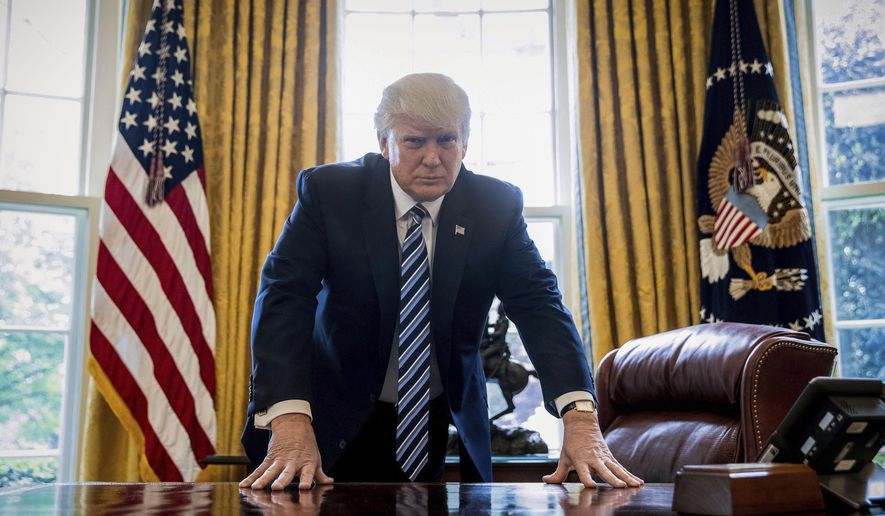The Justice Department said President Trump can unilaterally commit the military whenever he claims vital U.S. interests are at stake, releasing a new legal briefing defending his decision to launch military strikes against Syria’s chemical weapons capability in April.
The Office of Legal Counsel, which serves as the government’s chief internal legal watchdog, said the strikes were well within historical precedents dating back to George Washington and Thomas Jefferson.
And the OLC lawyers seemed to signal ever-expanding categories where presidents will commit U.S. troops through their own powers, without first seeking approval from Congress.
“While the United States is not the world’s policeman, as its power has grown, the breadth of its regional interests has expanded and threats to national interests posed by foreign disorder have increased,” Steven A. Engel, assistant attorney general in the OLC, said in an official 22-page opinion laying out the justification for the April action.
Mr. Engel said Mr. Trump “could reasonably determine that Syria’s use of chemical weapons in the ongoing civil war threatens to undermine further peace and security of the Near East.” Mr. Trump also claimed a valid interest in heading off a humanitarian crisis, and in trying to constrain future proliferation of chemical weapons, the lawyer concluded.
Initially the administration said it was acting under the 2001 Authorization for the Use of Military Force, approved by Congress to go after terrorists related to the Sept. 11, 2001, attacks. But the administration later said it was actually relying on Mr. Trump’s inherent powers under Article II of the Constitution, not on any grant of authority by Congress.
Lawmakers from both parties had questioned Mr. Trump’s claim of powers to conduct the strikes, worrying it continued to expand on the president’s ability to get the U.S. involved in hotspots without the checks and balances in the Constitution.
The Constitution grants the Congress the exclusive power to declare war, though it makes the president the commander of the armed forces.
Rep. Adam Schiff, the ranking Democrat on the House intelligence committee, said the new OLC memo would give presidents too much leeway.
“The administration’s assertion of its power to order the use of force in the absence of congressional authorization is broad enough to include almost any military action short of all-out war,” he said in a statement. “This sweeping claim of power is an invitation to endless and unrestricted conflict, and begs for a congressional response.”
He urged Congress to pass a new authorization for use of force that would narrow the 2001 grant, making clear Congress intends for the president to focus only on al Qaeda, the Taliban and the Islamic State.
The 2001 resolution has been used to justify U.S. action in countries stretching from the Philippines to Georgia to Yemen to Libya.
• Stephen Dinan can be reached at sdinan@washingtontimes.com.




Please read our comment policy before commenting.